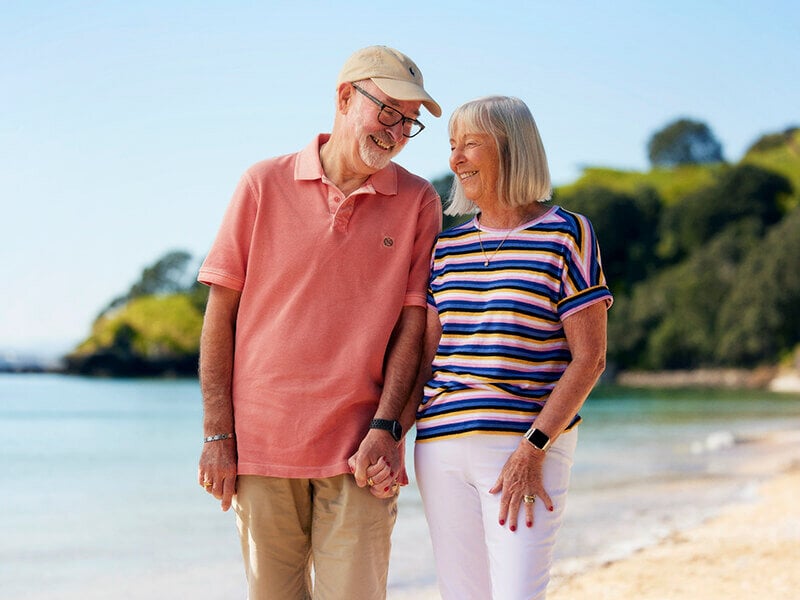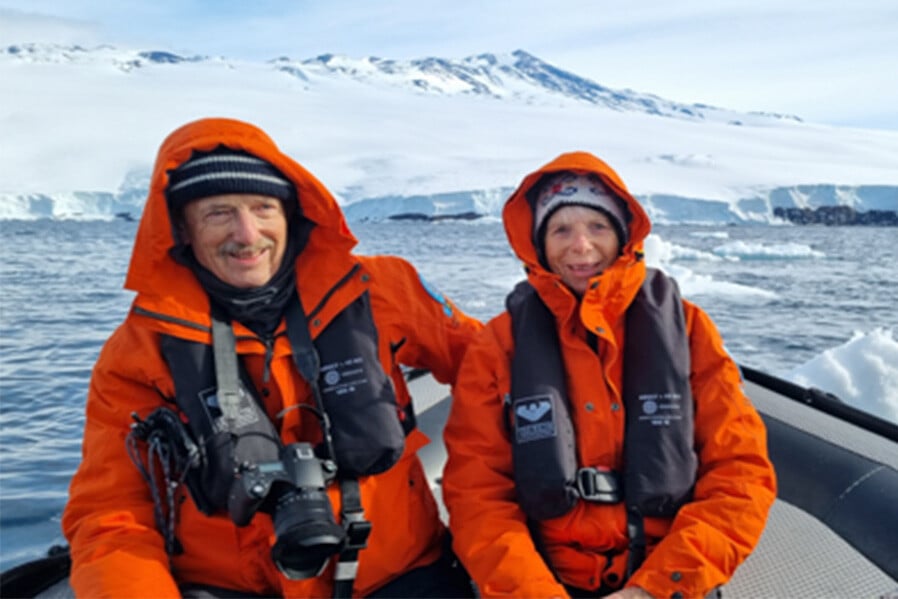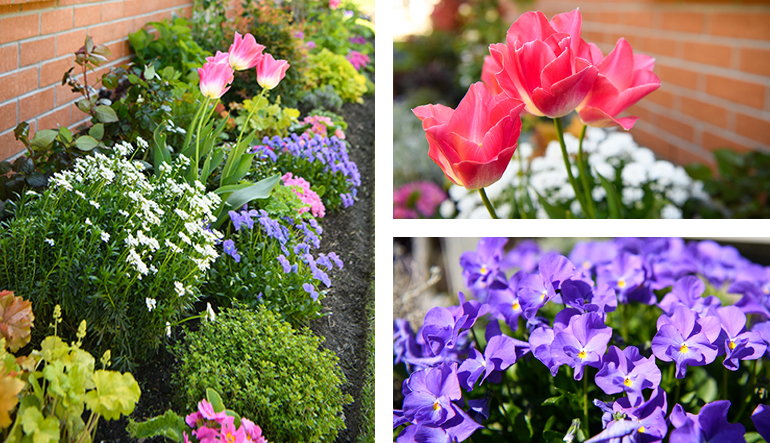The sisterhood of the three Marias
The sisterhood of the three Marias
-1.jpg?width=5056&height=3371&name=3%20Marias%20(1)-1.jpg)
The bond between Raelene Boyle Retirement Village residents Maria Ambrosi, Maria Soligon and Maria De Palma is the kind many hope to find but few really do.
In fact, for the three Marias it took more than 70 years, 15,000 kms and a leap of faith to find what they call their ‘sisterhood’.
“At my age I never expected to find friendships like this, we can talk about anything, we just ‘get’ each other,” Maria Soligon says.
The Marias, who are affectionately referred to as’ Maria 1’, ‘Maria 2’, and ‘Maria 3’, based on the order they moved into the Aberfeldie village, share much more in common than just a name.
Having emigrated to Australia from their native Italy – Maria Ambrosi and Maria De Palma from Calabria in 1951 and 1967, respectively, and Maria Soligon from northern Italy in 1958 – their deep connection is born of a time and place many around them do not know.
The trio’s fathers were all forced to serve for fascist dictator Benito Mussolini, and their childhoods were simple, with Maria Soligon and Maria De Palma completing just five years of compulsory formal education and Maria Ambrosi leaving school at 14 to act as a translator for her parents before completing her HSC when she was 47, and later a Bachelor of Arts.
“We come from big families, and you had to be rich to go to high school,” Maria De Palma says.
Maria Ambrosi and Maria Soligon experienced a feeling they say was akin to landing on another planet when they emigrated to Australia in the 1950s.
“It was not easy, especially in the beginning we didn't have the facilities or the food that we were used to,” Maria Soligon says.
“To get olive oil you'd have to buy a bottle at the chemist for medicinal purposes!”
“There was no parmesan cheese, no salami, no garlic, no oregano,” Maria Ambrosi recalls.
“The first thing that my mother did was write to her sister for the seeds for oregano, for basil, for Italian parsley and they came in the mail in envelopes, nobody checked them.”
By the time Maria De Palma arrived with her parents and siblings in 1967, Maria Ambrosi, Maria Soligon and thousands of others had paved the way; espresso bars had opened and Lygon Street was emerging as the vibrant slice of Italy that it remains today.
The Marias settled in Melbourne’s northern suburbs, Maria Ambrosi and Maria Soligon raising families and Maria De Palma a beloved aunt to many nieces and nephews.
By the mid 2010s all three Marias were widowed.
Drawing on a resilience and independence first developed as young women who left everything they knew for a better life, the Marias decided to break with Italian cultural norms and move into a retirement village.
“Lots of Italians think they die when they come to a place like this,” Maria Soligon laughs.
“I decided I didn't want to be a burden to my family, so it was a blessing to move here because I'm not well and here they have all the staff to look after me properly.”
The trio can’t quite remember how they first met, perhaps at one of the weekly happy hours, or perhaps in the corridor (Maria Soligon and Maria De Palma are neighbours), but they have been inseparable ever since.
“During the week we see each other every day we have lunch together in the dining room and people walk through and say, ‘hello Maria one, two, and three – we've got a reputation,” Maria Ambrosi says.
“This friendship, it’s everything.”
The Marias enjoy village activities together, going to the pool and exercise classes, but like all strong friendships, it is their conversations which are most enjoyable.
“I made friends here quickly when I moved in, but for me I had no one to talk to about my childhood until the Marias moved in,” Maria Ambrosi says.
“When we are together it’s like we’re reliving our childhood.”
The women have no doubt their friendship is doing wonders for their mental and physical health.
It’s a common sight for Maria De Palma and Maria Soligon to have their neighbouring apartment doors open so the sounds of Pavarotti or Bocelli can fill the hallway.
“I'm battling lymphatic cancer and that's why every morning Maria 3 comes and knocks on my door to check that I'm still here and to give me support,” Maria Soligon says.
During a recent hospitalisation, Maria Ambrosi and Maria De Palma met up with Maria Soligon’s daughters to offer support.
“It was so important she got better because when one of us is away it’s like a missing part,” Maria De Palma says.
The trio agree they are more than just friends.
“To my family I say I found two sisters,” Maria De Palma says.
“I’ve got two blood sisters, and I’ve found another two.”
Australia’s first State of the Nation report on Social Connection found the correlation between friendship and health is far from just anecdotal.
Insights from more than 4,000 people aged from 18-92 found loneliness can double a person’s chance of developing a chronic illness and more than quadruple their likelihood of developing depression and social anxiety.
Data from the Retirement Living Council’s recently-released ‘Better Housing for Better Health’ report also reveals residents in retirement communities are five times more likely to participate in social activities with others and more socially connected than the community at large.
The Marias say they feel grateful every day for bucking a cultural norm by moving into a retirement village.
“This friendship would have never happened if we stayed in our homes,” Maria Ambrosi says.
by Ryman Healthcare | Jul 29, 2024
Subscribe to our blog newsletter
You May Also Like
These Related Stories

Tales from the trail

From Antarctica to the Outback: Rodnie and Bryan’s ultimate travel adventures

